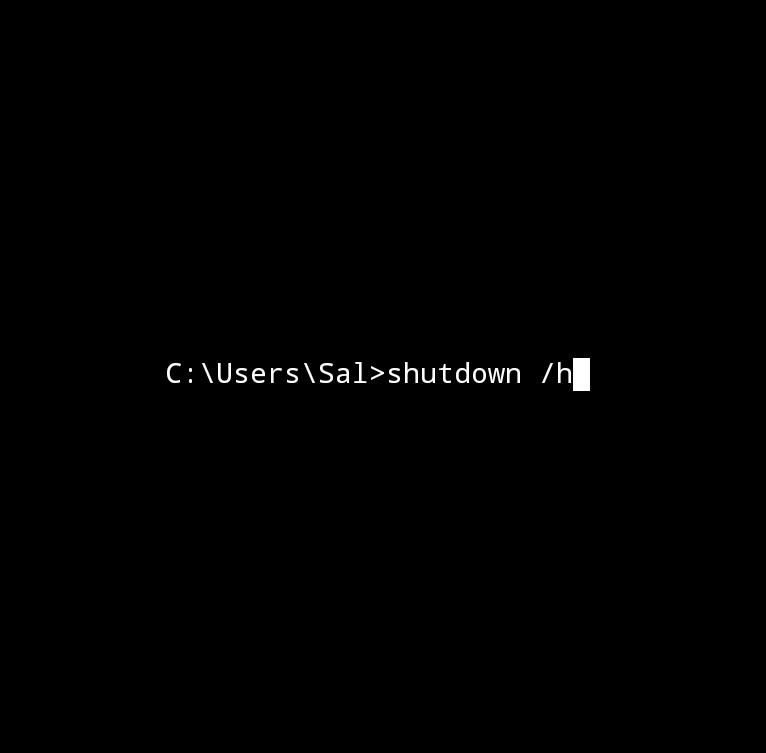I have an HP Stream 11 that I want to use for word processing and some light web browsing - I’m a writer and it’s a lightweight laptop to bring to the library or coffee shop to write on. Right now it’s got Windows and it’s unusable due to lack of hard drive space for updates. Someone had luck with Xubuntu, but it’s been a few years and it seems like Xubuntu is no longer trying to be a lightweight distro for use cases like this.
My experience with Linux is very limited - I played around with Peppermint Linux a bit back when it was a Lubuntu fork and I used Ubuntu on the lab computers in college. I can follow instructions to make a live boot and I can do an apt-get (so something Debian-based might be best for compatibility and familiarity) but I mostly have no idea what I’m doing, lol. I used to do DOS gaming as a kid so having to do the occasional thing via command line isn’t going to scare me off but I’m not going to pretend to have knowledge I don’t. I’m probably going to go with Mint on my gaming laptop next year but I suspect it’s not the best choice for my blue bezeled potato (although I might try it anyway).
I second Debian with LXDE. I run it on much older hardware with no issue.
Just something to note, LXDE is no longer officially maintained by the original devs (there are some community maintainers). LXQt is the new project from those devs and still seems to be going strong.
Not saying to avoid LXDE, just that updates may be few and far between.
I didn’t know that. I usually recommend LXDE because I have used it for a really long time. LXQt is also a great option, I haven’t used it in a few years but I remember it being nice and lite.
Can confirm!
Debian + xfce.
This is probably the way to go. Relatively minimal install with a pretty lightweight DE. Rock-solid-stable too, so even if you update obsessively, you’re very unlikely to ever need to downgrade anything.
I actually went with this setup on a Dell M4500 and it works a treat, really gave the ol gal a second lease on life.
Devuan + xfce.
Devuan
Just no. Systemd can get more efficient than running hundreds of poorly integrated scripts and daemons to have a working system.
Note: this comment is long, because it is important and the idea that “systemd is always better, no matter the situation” is absolutely dangerous for the entire FOSS ecosystem: both diversity and rationality are essential.
Systemd can get more efficient than running hundreds of poorly integrated scripts
In theory yes. In practice, systemd is a huge monolithic single-point-of-failure system, with several bottlenecks and reinventing-the-wheel galore. And openrc is a far cry from “hundreds of poorly integrated scripts”.
I think it is crucial we stop having dogmatic “arguments” with argumentum ad populum or arguments of authority, or we will end up recreating a Microsoft-like environment in free software.
Let’s stop trying to shoehorn popular solutions into ill suited use cases, just because they are used elsewhere with different limitations.
Systemd might make sense for most people on desktop targets (CPUs with several cores, and several GB of RAM), because convenience and comfort (which systemd excels at, let’s be honest) but as we approach “embedded” targets, simpler and smaller is always better.
And no matter how much optimisation you cram into the bigger software, it will just not perform like the simpler software, especially with limited resources.
Now, I take OpenRC as an example here, because it is AFAIR the default in devuan, but it also supports runit, sinit, s6 and shepherd.
And using s6, you just can’t say “systemd is flat out better in all cases”, that would be simply stupid.
For the record. OpenRC is the default on Alpine Linux, which is probably run on millions of Docker installations.
And Docker initially used Ubuntu. They explicitly and specifically switched to Alpine in 2016 for performance, to minimise the overhead.
“systemd is always better, no matter the situation” is absolutely dangerous for the entire FOSS ecosystem: both diversity and rationality are essential.
I agree with this, however the rest is more open to discussion.
Systemd might make sense for most people on desktop targets (…) “embedded” targets, simpler and smaller is always better.
A few years ago I was working on a bunch of “embedded” devices (4 x ARM @ 800 Mhz + 256MB of RAM) and whatever we the popular alternatives and the truth is that only with systemd we were able to boot and have a usable system (timers, full dual stack DHCP/SLAAC networking network time, secure DNS) without running out of resources for our daemons later on.
The issue with sysvinit and OpenRC etc. isn’t that they aren’t good, it is that they’re simply init systems and nothing more. In order to have just the bare features above we would have to depend on tons of other small packages and daemons that would all eat up RAM and deal with all the integration pain because they weren’t designed to work together. Are you aware of the pain and number of things you’ve to setup to just have dual stack networking? With systemd you cut a lot of those smaller daemons and end up a few that have a much smaller RAM footprint and are actually made to work with each other.
Systemd also providers very useful features like socket activated services in that can be leveraged to have the system wait for incoming connections and once it gets one launch a program. Without systemd it would’ve been one more constantly running daemon. It also provided us the ability to monitor if all required services were running, kill things going over the line, restart on specific conditions and even trigger alerts.
Yes, you can do all of the above without systemd but the amount of stuff it required didn’t fit our 256MB target, nor the power budgets - we tried it, trust me. Besides all that without so many moving parts and by relying on systemd our solution was way more robust and easier to develop / debug.
I’d go for Mint with XFce or xlde/lxqt for this one, or Lubuntu. Basically, you need anything that uses less than 700 MB of RAM (ideally around 350, like the Raspbery Pi version of Debian, but that doesn’t exist in the x86 world unless you go really low end, like DamnSmallLinux), and then you need to be very careful to not open more than 1-2 tabs on your browser, or you will start swapping. The biggest problem on your PC is not the speed, neither the size of the drive. It’s the 2 GB RAM. It’s a strict minimum of 4 GB these days to do adequate web browsing. But it’s still possible with 2 GB if you’re very careful what you’re loading, and how many tabs you’re using. My mom’s laptop has 2 GB of RAM too, and it’s equally slow in CPU speed, but it works for her, because she doesn’t know how to use tabs (she uses the browser with a single tab), and that’s enough at 2 GB.
And I know what I’ll suggest next is an anathema in these parts, but it’s true: Chrome uses less ram (there’s even a setting for it) and it’s significantly faster on older computers than Firefox. I have put together at least 8 old computers with Linux for friends and family, and that has been my experience consistently. On newer hardware it doesn’t make much of a difference, but on old hardware (e.g. anything less than 1500 Passmark CPU points, like yours), it does, visibly so.
Other suggestions: turn off start-up services on the xfce prefs about services you don’t need. For debian xfce, you will also need to edit a text file for policy-kit (somewhere on /usr) to make the laptop sleep on its own without intervention (otherwise it will tell you that it doesn’t have permissions to do so). Finally, Chrome might not load up on debian xfce, you will need to edit the launcher to include the basic password store chrome option, to make it load. Other ways to save RAM on xfce: include only 1 panel, don’t use applets you don’t really need, and use a color instead of a picture for background (you will be amazed how much ram that takes!).
Final advice: update the bios firmware via windows before you delete it. This will allow you to disable the fwupd service on linux, to save more ram (there are not going to be any new versions for that old model anyway).
I have debian 32bit running on my extremely underpowered 2009 eeepc - 1.6ghz atom, 1gig ram. Cinnamon as DE
It’s up to date as well.
Websites are pretty useless but it works well as a music server and can digitise my vinyl with several plugins without dropping any packets.
With 2gig you’ll be able to browse the web
A potato? GlaDOS surely.
Start with Debian, end with Debian. Mainly as you can start with a minimal install and swap out DE’s until you find one that works best for you.
I’m surprised noone have mentioned Lubuntu yet. It’s a debloated and light weight version of Ubuntu and can run on very old hardware. I’ve used it in the past before on shitty hardware with great success
Linux Mint Debian Edition. If you want to go more minimal, try Debian.
Debian and xfce, easy
Debian-based potatoe Linux is AntiX.
IIRC antix doesn’t use systemd, right? I don’t want to argue about systemd, but it may be frustrating for a new user trying to follow tutorials that say to use systemctl.
Obligatory Bunsenlabs plug. Nice light Debian based distro with no DE. It cleverly uses openbox wm and tint2 and some other tricks to make it feel like you have one though.
Confirm it runs awesome on potatoes.
It’s been some time since I used it on an old laptop, but Puppy Linux was very responsive on shit hardware.
I can recommend as well. It is maybe not the most beginner friendly OS since it works quite differently than most other OS’s unless installed in a curtain way. Iirc. The installer is quite helpful in getting it set up correctly.
Puppy Linux was my first ever Linux distro. Great memories.
Someone should come up with a new distro with the name potatOS, just for cases like this .
There’s already a bunch of distros for lower-end hardware. PuppyLinux is probably what you’re looking for, and it’s actually a genre of distro that takes a typical distro like SUSE, Debian, Ubuntu, Fedora, Arch etc. and packages it into a slimmer spin with some shared utilities.
Linux Mint Debian Edition XFCE like someone else said already.
On a second note, maybe you’ll find the program Scribus of interest to you.
But why?
You want to use Mint because it’s better Ubuntu with cinnamon. Other DEs are far less polished because they focus on the one they’re developing.
MX is Debian with xfce and some extra tools to make Debian more user friendly for desktop use. It’s superior in every way.
Mint with XFCE or MATE
Wrong question, distro doesn’t matter ;). Just go with Debian or Arch or something else that don’t preinstall crap.
What matters is what programs you use, including the graphical environment.











